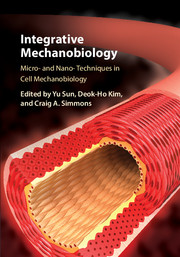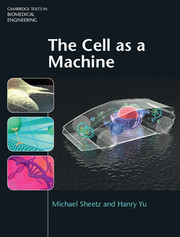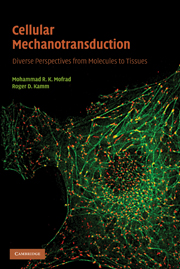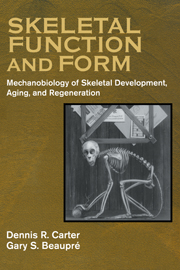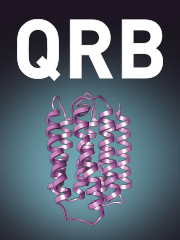Integrative Mechanobiology
Micro- and Nano- Techniques in Cell Mechanobiology
- Editors:
- Yu Sun, University of Toronto
- Deok-Ho Kim, University of Washington
- Craig A. Simmons, University of Toronto
- Date Published: July 2016
- availability: This ISBN is for an eBook version which is distributed on our behalf by a third party.
- format: Adobe eBook Reader
- isbn: 9781316464106
Find out more about Cambridge eBooks
Adobe eBook Reader
Other available formats:
Looking for an inspection copy?
This title is not currently available on inspection
-
The first of its kind, this comprehensive resource integrates cellular mechanobiology with micro-nano techniques to provide unrivalled in-depth coverage of the field, including state-of-the-art methods, recent advances, and biological discoveries. Structured in two parts, the first part offers detailed analysis of innovative micro-nano techniques including FRET imaging, electron cryo-microscopy, micropost arrays, nanotopography devices, laser ablation, and computational image analysis. The second part of the book provides valuable insights into the most recent technological advances and discoveries in areas such as stem cell, heart, bone, brain, tumor, and fibroblast mechanobiology. Written by a team of leading experts and well-recognised researchers, this is an essential resource for students and researchers in biomedical engineering.
Read more- Describes state-of-the-art techniques and introduces the most recent progress in the field
- Written by a team of well-known researchers
- The first work of its kind, combining cellular mechanobiology with micro-nano technologies
Customer reviews
Not yet reviewed
Be the first to review
Review was not posted due to profanity
×Product details
- Date Published: July 2016
- format: Adobe eBook Reader
- isbn: 9781316464106
- contains: 89 b/w illus.
- availability: This ISBN is for an eBook version which is distributed on our behalf by a third party.
Table of Contents
Part I. Micro/Nano Techniques in Cell Mechanobiology:
1. Nanotechnologies and FRET imaging in live cells Eddie Y. Chung, Qin Qin, Agamoni Bhattacharyya, Shaoying Lu and Yingxiao Wang
2. Electron microscopy and three-dimensional single-particle analysis as tools for understanding the structural basis of mechanobiology Niels Volkmann and Dorit Hanein
3. Stretchable micropost array cytometry: a powerful tool for cell mechanics and mechanobiology research Yue Shao, Shinuo Weng and Jianping Fu
4. Microscale generation of dynamic forces in cell culture systems Christopher Moraes, Luke A. MacQueen, Yu Sun and Craig A. Simmons
5. Multi-scale topographical approaches for cell mechanobiology studies Koichiro Uto, Elliot Fisher, Hong-Nam Kim, Chang Ho Seo and Deok-Ho Kim
6. Hydrogels with dynamically tunable properties Murat Guvendiren and Jason A. Burdick
7. Micro-engineered tools for studying cell migration in electric fields Jiandong Wu and Francis Lin
8. Laser ablation to investigate cell and tissue mechanics in vivo Teresa Zulueta-Coarasa and Rodrigo Fernandez-Gonzalez
9. Computational image analysis techniques for cell mechanobiology Ge Yang and Hao-Chih Lee
10. Micro- and nanotools to probe cancer cell mechanics and mechanobiology Yasaman Nematbakhsh and Chwee Teck Lim
11. Stimuli-responsive polymeric substrates for cell-matrix mechanobiology Mitsuhiro Ebara and Koichiro Uto
Part II. Recent Progress in Cell Mechanobiology:
12. Forces of nature: understanding the role of mechanotransduction in stem cell differentiation Andrew W. Holle, Jennifer L. Young and Yu Suk Choi
13. Heart valve mechanobiology Craig Simmons
14. Bone cell mechanobiology using micro- and nano-techniques Chao Liu, Kevin Middleton and Lidan You
15. Molecular mechanisms of cellular mechanotransduction in wound healing Vincent F. Fiore, Dwight M. Chambers and Thomas H. Barker
16. Micropost arrays as a means to assess cardiac muscle cells Andrea Leonard, Marita L. Rodriguez and Nathan J. Sniadecki
17. Micro/nanofabrication for the study of biochemical and biomechanical regulation of T cell activation Hye Mi Kim and Junsang Doh
18. Study of tumor angiogenesis using microfluidic approaches Yoojin Shin, Sewoon Han, Hyo-Eun Jeong, Jeong Ah Kim, Jessie S. Jeon and Sid Chung
19. Neuromechanobiology of the brain: mechanics of neuronal structure, function, and pathophysiology Jerel Mueller and William Tyler.-
General Resources
Find resources associated with this title
Type Name Unlocked * Format Size Showing of
This title is supported by one or more locked resources. Access to locked resources is granted exclusively by Cambridge University Press to lecturers whose faculty status has been verified. To gain access to locked resources, lecturers should sign in to or register for a Cambridge user account.
Please use locked resources responsibly and exercise your professional discretion when choosing how you share these materials with your students. Other lecturers may wish to use locked resources for assessment purposes and their usefulness is undermined when the source files (for example, solution manuals or test banks) are shared online or via social networks.
Supplementary resources are subject to copyright. Lecturers are permitted to view, print or download these resources for use in their teaching, but may not change them or use them for commercial gain.
If you are having problems accessing these resources please contact [email protected].
Sorry, this resource is locked
Please register or sign in to request access. If you are having problems accessing these resources please email [email protected]
Register Sign in» Proceed
You are now leaving the Cambridge University Press website. Your eBook purchase and download will be completed by our partner www.ebooks.com. Please see the permission section of the www.ebooks.com catalogue page for details of the print & copy limits on our eBooks.
Continue ×Are you sure you want to delete your account?
This cannot be undone.
Thank you for your feedback which will help us improve our service.
If you requested a response, we will make sure to get back to you shortly.
×
